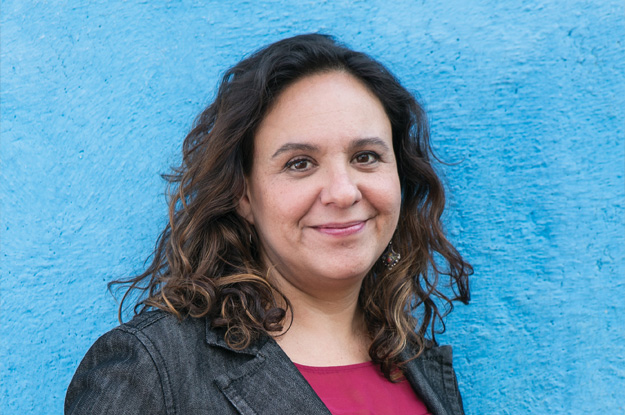This article is adapted from AQ’s print issue on youth in Latin America. See the rest of our Top 5 Latin American journalists.
Marcela Turati found the news in Mexico disheartening. It wasn’t just what she read, though the reports of drug violence ravaging the northern border were grim. It was also how the stories were told. Deaths were described as disembodied statistics.
“It was like a soccer scoreboard … eight people dead, four women, two kids,” said Turati, 43.
As a reporter with more than 10 years experience covering poverty and social movements for leading Mexican newspapers Reforma and Excelsior — but also as a native of the northern state of Chihuahua — she knew the impact of this conflict on individuals, families and communities. In 2008, she decided that was the story she wanted to tell.
“I wanted to cover violence as a phenomenon: how it causes suffering and destroys lives,” she said.
Nine years later, Turati’s compassionate approach to storytelling has made her a respected voice on the drug war’s toll. Her book, Crossfire: Victims Trapped in the Narco-War, received wide acclaim for its personal accounts of victims of drug violence in border towns like Ciudad Juárez.
A recipient of the Louis Lyons and Gabriel García Márquez Excellence awards, Turati’s work speaks for itself. But it’s her advocacy for young reporters and her promotion of narrative, on-the-ground reporting that exposes injustice and corruption that’s changing journalism in Mexico.
In 2006, she cofounded Periodistas de a Pie (Journalists on Foot), a network that connects journalists and offers them safety training. Her 2016 venture, Quinto Elemento Lab, helps investigative journalists secure funding for their reporting, edit and disseminate articles. This is essential in Mexico today, she said.
“Investigative journalists are the first to be silenced,” Turati told AQ. “The media is going through crises of violence (and) censorship.”
The repression has hit home. As of June, more journalists and media workers had been killed in Mexico than anywhere else in 2017. While spending the past year as a Nieman Fellow at Harvard University, Turati watched from afar as multiple colleagues were murdered.
Despite the adversity, Turati draws strength from the work of Mexico’s young journalists.
“Many of them do journalism with their own money and free time,” Turati said. “They’re very brave.”
It’s clear they’ve learned from one of the best.
—
O’Boyle is an editor for AQ






